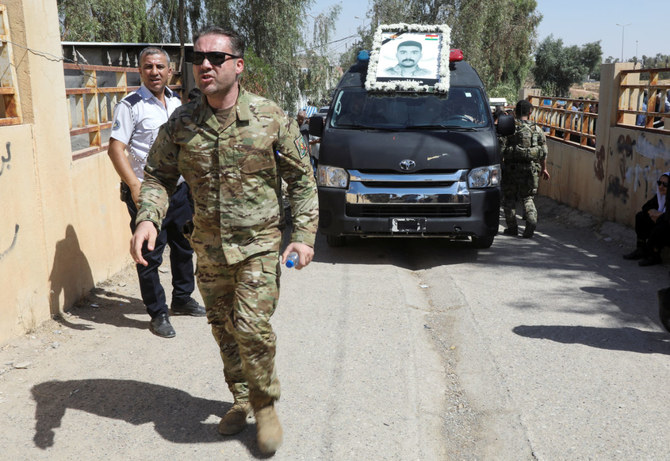BAGHDAD: The Iraqi president announced Tuesday that he will summon Turkiye’s ambassador and hand him a formal letter of protest over recent Turkish airstrikes on Iraqi territory.
The official protest came a day after an airstrike on a military airport in Arbat, southeast of the city of Sulaymaniyah in northern Iraq’s semi-autonomous Kurdish region. Three members of the region’s counterterrorism force died and three of the Kurdish Peshmerga forces were wounded, according to local officials.
“Day after day, systematic military attacks on Iraqi territory, specifically in (the Kurdish) region, are escalating without military or security justification,” Iraqi President Abdul Latif Rashid said in a statement.
The “aggression targeted innocent civilians and military and security headquarters,” he said.
Rashid belongs to the Patriotic Union of Kurdistan (PUK) party, which has its main seat of power in Sulaymaniyah.
There was no immediate comment from Turkiye.
The targeted airport had recently undergone rehabilitation to facilitate the training of anti-terror units affiliated with the PUK, one of the two often-competing main parties in the region.
Bafel Talabani, the party’s leader, in an official statement on Monday labeled the alleged Turkish attack as part of a series of “conspiracies” aimed at jeopardizing Kurdistan’s security. He urged the federal government to “uphold its constitutional and national duties” in safeguarding Iraq’s territory and airspace, specifically in the Kurdish region.
US Ambassador to Iraq Alia Romanowski in a statement posted on the platform X, formerly known as Twitter) condemned the attack on the airport.
“We reaffirm our support for respect of Iraq’s sovereignty and territorial integrity — both are essential to Iraq’s stability and security,” she said.
Also on Monday, the Kurdistan National Congress, an umbrella organization of Kurdish groups and parties, said in a statement that one of its members was killed inside the group’s office in Irbil. It gave no details.
Turkiye often launches strikes against targets in Syria and Iraq that it believes to be affiliated to the Kurdistan Workers’ Party, or PKK, a Kurdish separatist group that has waged an insurgency against Turkiye since the 1980s.
Ankara considers the PKK and allied Kurdish groups in Syria and Iraq as terrorist organizations.
In April, Turkiye closed its airspace to flights to and from Sulaymaniyah International Airport, citing an alleged increase in Kurdish militant activity threatening flight safety.
Days later, the Syrian Democratic Forces — Kurdish-led forces operating in northeast Syria that are allied with the United States but considered by Turkiye to be an offshoot of the PKK — accused Turkiye of launching a strike on the airport when SDF commander Mazloum Abdi was at the site. Abdi was unharmed.
Also on Tuesday, Iraqi officials announced that they had carried out an agreement to disarm members of Iranian Kurdish dissident groups based in northern Iraq and to relocate their members from their current bases near the Iranian border. Iran has periodically carried out airstrikes on the groups’ sites on Iraqi territory.
A joint committee set up by the central government in Baghdad and the Kurdish regional government, said the bases had been “permanently evacuated” and their occupants “transferred to a place far from the border.”


























